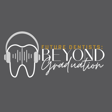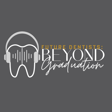
Burnout
About the Hosts:
Savanah Craig, DDS, is an accomplished dentist with a strong emphasis on continuous learning and patient care. Known for her excellent organizational skills, Dr. Craig enjoys planning and taking part in travel and vacation activities, a testament to her belief in the importance of work-life balance. As an early-career dentist, she balances her professional responsibilities with personal interests, including spending time outside her home exploring new places.
Ronnetta Sartor, DMD is a fellow dentist and advocate for self-care to prevent professional burnout. She has transitioned from working as an associate dentist to owning her practice, a leap that represents her ambition and commitment to the field of dentistry. Renetta believes in the power of gratitude journals and personal wellbeing routines as crucial tools for maintaining a balanced and fulfilled professional life.
Episode Summary:
In this latest episode of Beyond Graduation, Dr. Savanah Craig and Dr. Ronnetta Sartor delve into a candid discussion on burnout, the significance of taking vacations, and the art of achieving a gratifying work-life balance. The episode serves as a reflection of their early career journeys and the importance of taking control of one's personal and professional health.
Savanah outlines her proactive approach to scheduling getaway trips, emphasizing the value of stepping away from the demands of dentistry, while Ronnetta shares her personal challenges with taking vacations and her plan to implement what she's learned. The conversation pivots to consider the signs of approaching burnout and the strategies.
Key Takeaways:
- Acknowledge and act upon the early warning signs of burnout – such as a lack of motivation to work, emotional exhaustion, or a negative mindset toward patients and colleagues.
- Creating and upholding personal routines like workout sessions, gratitude journaling, or gardening can help maintain personal wellbeing and professional performance.
- Proactive vacation planning can ensure meaningful downtime, but it’s essential for dental professionals to execute these plans to truly benefit from their time off.
Connect with Savanah Craig: @savanahcraigdds
Connect with Ronnetta Sartor: @dr_sartor
Connect with FutureDentists: @futuredentists
Connect with Future Dentists Beyond Graduation: @futuredentistsbeyondgraduation
-books for further reading sponsored by IgniteDDS:
- Dental Residency Guide and Beyond Graduation eBooks: igniteDDS.com/eBooks
For a more in-depth exploration on preventing dental burnout and to hear the full conversations between Dr. Savanah Craig and Dr. Ronnetta Sartor, be sure to listen to the entire episode of Beyond Graduation. Keep an eye out for future episodes full of insightful discussions and practical tips designed to support dental professionals as they navigate post-graduation life.


